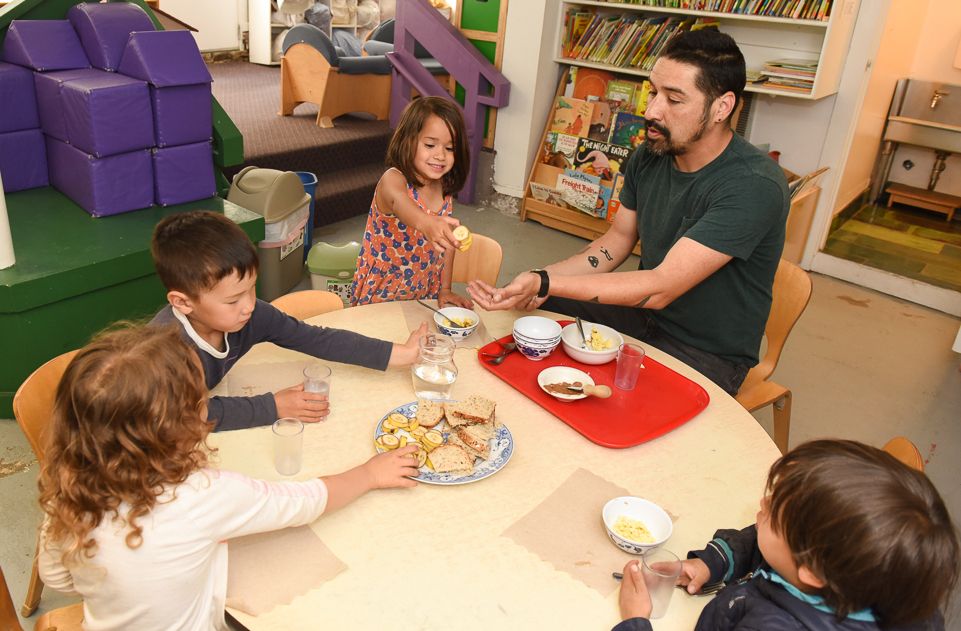Healthy Eating For Preschoolers
It has been a basic tenet of Buen Dia’s philosophy since 1977 to model good nutrition for the children in our care. We follow an organic, whole-grain vegetarian diet with no processed foods and use a minimal amount of honey or turbinado sugar added to our baked goods, including birthday cakes.
This may be a different diet than some of our families follow at home. We are sensitive to the cultural practices of each family and discuss their food preferences before a child is enrolled. We inform parents about our nutrition policy and ask them not to send processed foods such as pre-packaged cheese and crackers, fried chips, white bread, white rice, and luncheon meats that contain nitrites, high levels of salt, sugar or other additives. Other poor choices include sweetened yogurts, fruit in syrup, cookies, sweets and most granola bars.
To ensure healthy food choices, it is important to read labels! If sugar or salt is one of the three first ingredients, such foods are not appropriate for school lunches.
In the classroom we encourage good eating habits by making organic meals with the children. Each day our students participate in the preparation of healthy snacks: they cut grapes in half, cut apples and other fruits in small pieces, wash strawberries, grate cheese or carrots, separate broccoli into small “trees,” spread nut butters on bread, sort beans, crack eggs, measure ingredients and mix batter for waffles and cakes. Applesauce or date sugar are used as sweeteners and low-fat cream cheese often replaces butter. While having fun and feeling successful, children also learn to use kitchen utensils, wash tables, fill bowls and compost scraps.
Occasionally when we have cultural celebrations, we may include a typical dish: For example, we fry veggie wontons for Lunar New Year. We don’t usually make fried foods but it is exciting for the children to fill the wrappers with one or two ingredients like one peanut or a piece of broccoli. This process encourages small muscle coordination and concentration while having fun.
All families are asked to pack nutritious lunches for their children. For non-vegetarian families, they can try a great variety of non-meat choices or send organic, unprocessed meats (home-cooked is a good option) with no chemicals or additives. Each family’s eating habits are very important and play a major role in shaping their children’s attitude toward food and healthy living. Children’s bodies develop at a rapid rate during the first six years of life and it is our joint responsibility to give them the best start possible.

